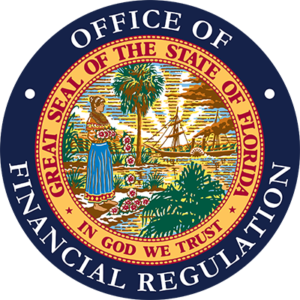State Update
The Florida State Legislative Session has begun. The Tech Hub Policy Committee will be giving updates based on bills and initiatives that could impact the tech community.
House Bill 779 (HB 779)/ Senate Bill 1880 (SB 1880) – Offers and Sales of Securities
The Office of Financial Regulation (OFR) is the primary regulator of the state-chartered and licensed financial services industries in Florida. They have drafted legislation to reform the Florida Securities and Investor Protection Act (Chapter 517, Florida Statutes) with the aim of stimulating the growth of a capital market for the financing of Florida businesses.
Their goal is to promote Florida’s economy through the creation of a self-sustaining, in-state capital market where newly formed businesses can obtain seed or expansion capital. The desired outcome is to have Florida residents and businesses obtain capital from within our state and ultimately remain in Florida and contribute to the state’s economy. This legislation could impact startups and businesses and could provide new funding sources.
Click here for a video message from OFR Commissioner Weigel on the bill.
 The OFR is having a Legislative Update Zoom Meeting today, January 18, 2022 01:30 PM.
The OFR is having a Legislative Update Zoom Meeting today, January 18, 2022 01:30 PM.
The Office of Financial Regulation (OFR) invites you to join a Legislative Update meeting to learn more about the progress of the securities legislative initiative. Our goal is to promote Florida’s economy through the creation of a self-sustaining, in-state capital market where newly formed businesses can obtain seed or expansion capital.
Click here to register. You can also contact the OFR office at (850) 410-9601 or feedback@flofr.gov.
Federal Update
- The FCC to consider a proposed rule that would require broadband Internet access service providers to post a “nutrition label” at the point of sale on their offerings, clearly stating “prices, introductory rates, data allowances, broadband speeds, and management practices, among other things.” This is meant to help consumers make informed choices when comparing service offerings from competing providers. https://www.fcc.gov/document/empowering-broadband-consumers-through-transparency
- The FCC also recently rolled out its new “Affordable Connectivity Program” which gives qualifying households a $30 credit per month towards their Internet service ($75 for those on tribal lands). Per the FCC, a household is eligible if they meet one of the following:
- Has an income that is at or below 200% of the federal poverty guidelines; or
- Participates in certain assistance programs, such as SNAP, Medicaid, Federal Public Housing Assistance, SSI, WIC, or Lifeline;
- Participates in Tribal specific programs, such as Bureau of Indian Affairs General Assistance, Tribal TANF, or Food Distribution Program on Indian Reservations;
- Is approved to receive benefits under the free and reduced-price school lunch program or the school breakfast program, including through the USDA Community Eligibility Provision in the 2019-2020, 2020-2021, or 2021-2022 school year;
- Received a Federal Pell Grant during the current award year; or
- Meets the eligibility criteria for a participating provider’s existing low-income program.
- Florida’s legislature is considering two sweeping data privacy bills this year that could require companies collecting and sharing the data of Florida residents to include two links on their home page, one stating “Do Not Advertise to Me,” and the other stating, “Do Not Sell or Share My Personal Information” or “Do Not Sell My Data.”
- Washington, DC’s Attorney General, Karl Racine has introduced the first of its kind legislation aimed at stopping algorithmic bias. This legislation would, if passed, require organizations to report and correct any biases that are incorporated into AI machine learning. While this is not a bill in Florida, Florida-based companies could still be liable if any of their users are in DC.

